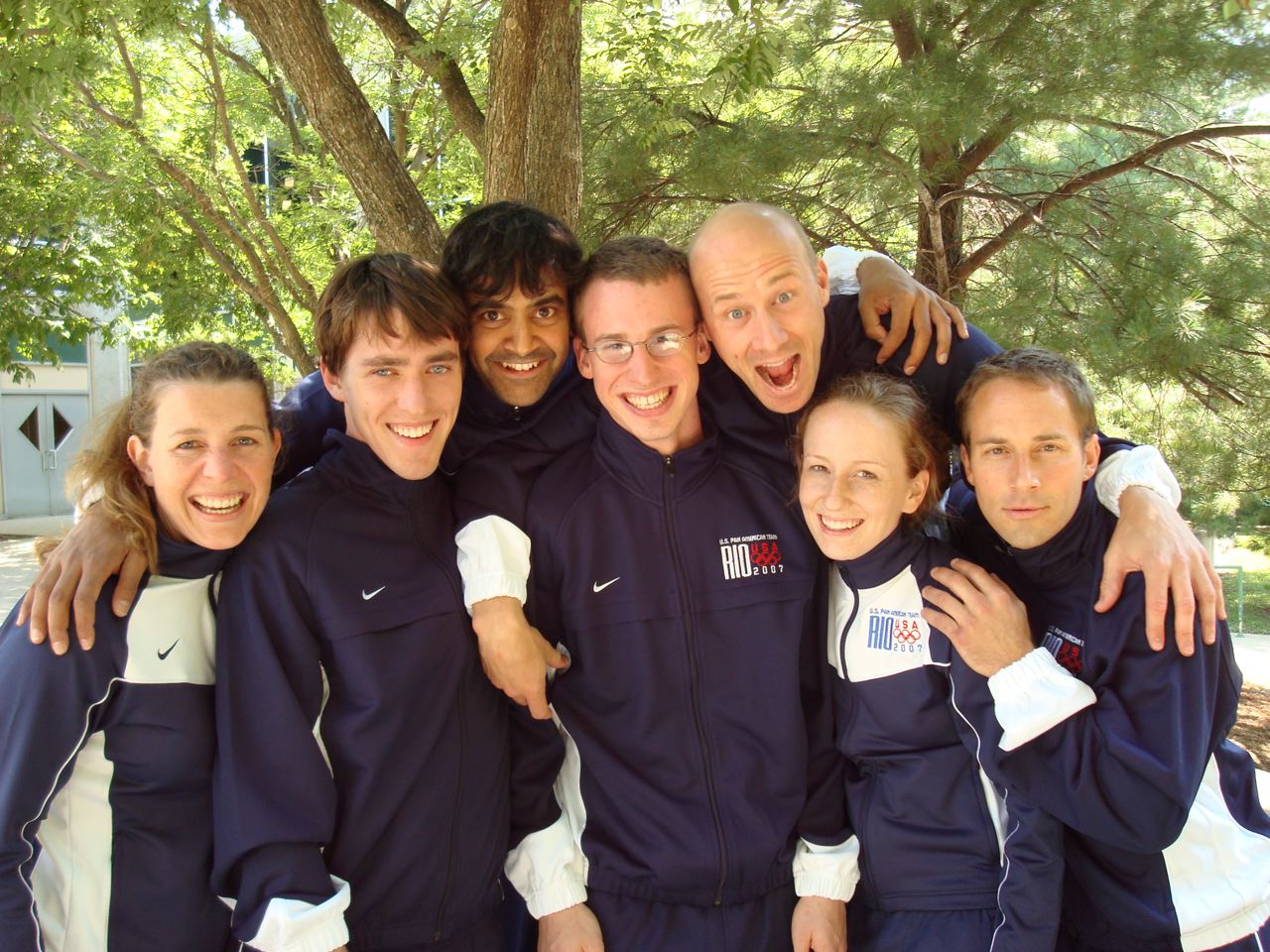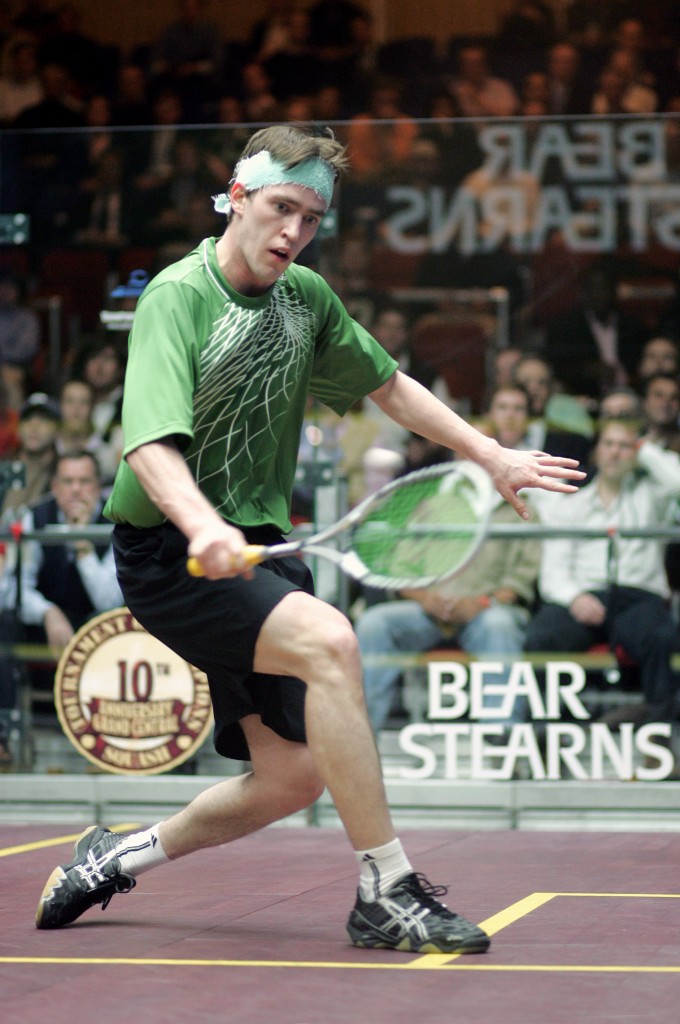
By Jay D. Prince
Two years ago, the sport of squash had one foot in the door of the Olympics. After the International Olympic Committee put all 28 of the existing sports to a test by voting on each of them as a means of determining whether or not to keep them on the program, both baseball and softball were dropped because they did not receive the necessary majority of votes to keep their place in the 2012 Olympic Games. You may recall that the IOC had a waiting list of five other sports that were hoping to be added if space was opened up. The five sports were golf, rugby, karate, roller sports and squash. To the delight of the squash world, squash and karate succeeded in receiving enough votes to take them to the final round of voting, but that is where the party ended. Neither sport garnered the necessary two-thirds majority of votes needed to become full-fledged medal sports.
To say the outcome of the voting was disappointing is an understatement. Squash had already been a part of the Pan American Games since 1995, and it was a medal sport in the Commonwealth Games beginning in 1998. Both international multi-sport quadrennial events have served as opportune venues for showcasing squash. In Manchester, in 2002, the Queen of England paid a visit to the squash venue during the Commonwealth Games, and Canada’s Jonathon Power took the gold. Four years ago in the Dominican Republic, Canadian Shahier Razik captured the men’s and Latasha Khan the women’s gold medals in the Pan Am Games.
The disappointment of failing to achieve full Olympic status in that 2005 vote was felt throughout the international squash community. The World Squash Federation had spent years lobbying the IOC in hopes of earning the sport’s first appearance in the London Olympic Games in 2012. And virtually every National Squash Federation, including US Squash, was right there fully supporting the effort being put in by the WSF.
And then there was the collective sigh. Or maybe it was an international pounding of the fist and wonderment as to what in the world it would take to get such an incredibly fast-paced, athletic racquet sport onto the Olympic program. That was in July, 2005.
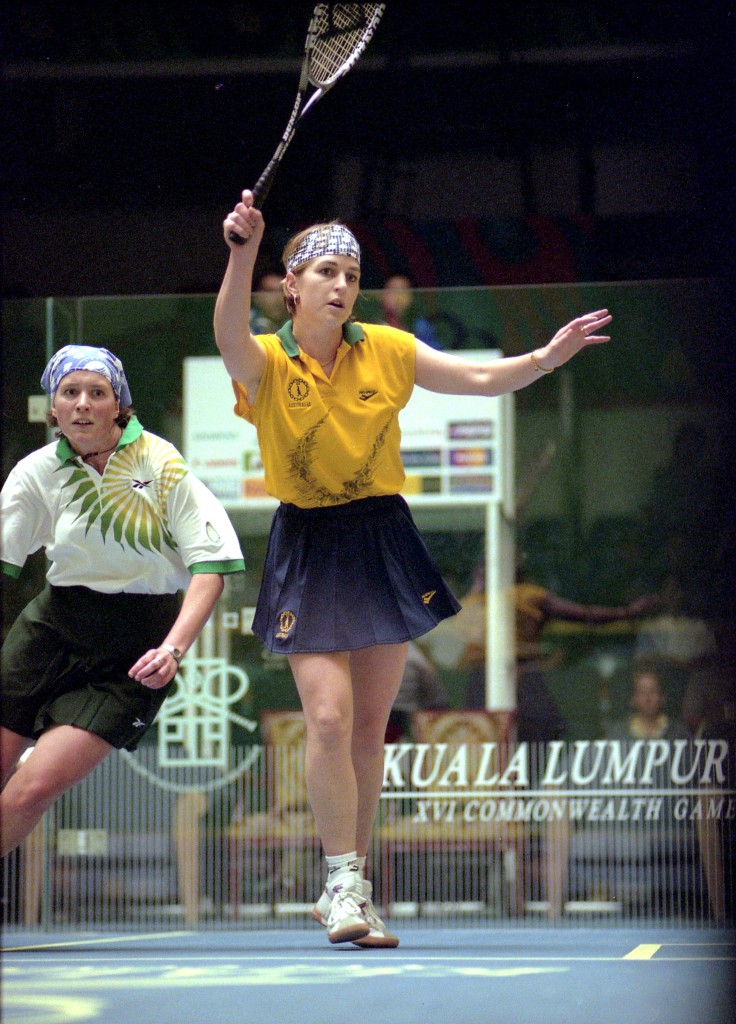
In July 2007, just over a month ago, squash once again put itself on the map by participating in the Pan American Games in Rio de Janeiro, Brazil. Favored to win the men’s singles was Canadian defending champion, Shahier Razik. On the women’s side, American Natalie Grainger was the overwhelming favorite to succeed teammate Latasha Khan as the gold medalist just five months after becoming a US citizen. And the US women were expected to take the team gold with Grainger leading the way.
For Grainger, the trip to Rio brought back memories, and some comparisons, of her participation in the 1998 Commonwealth Games in Kuala Lumpur, Malaysia, as a member of the South African team. “I’d say the Commonwealth Games is bigger, if you look at the number of athletes and the number of countries playing,” recalled Grainger. “But the Opening Ceremonies here were awesome, the apartments we stayed in were really nice, and I think Rio did a good job.” Of course, one given with squash is that there was a lot more depth in the Commonwealth Games with the likes of England and Australia also participating. In Rio, Grainger was on a mission, and nothing was going to stop her from going for the gold. Not even a crazy transportation schedule to and from the squash venue.
“We couldn’t take a direct route from the athlete’s village to the squash venue for security reasons,” said Grainger. “So the 25 kilometer journey that could have taken 20 minutes took nearly an hour-and-a-half. To get to our morning matches, we had to catch the 5:40 a.m. bus and, because of the playing schedule, we wouldn’t get back until 9:30 or 10:00 at night.”
No worries, however, as Grainger methodically thumped every opponent on her way to the final. A grand total of 34 minutes to win her first two matches, including the opener against American teammate Michelle Quibell, and another 20 to take the gold medal over Canadian Alana Miller. Afterwards, Grainger was beaming. “It is awesome to win this. I’m really, really excited to win a gold medal for the United States,” said Grainger. “I know I was the No. 1 seed and was expected to win, but it feels great to actually produce the goods. This is a tournament I’ve been looking forward to for a long time.” Funny thing is, Grainger nearly missed the match altogether when the bus she was supposed to take to the venue left early. Instead, the USOC hired a car to take her to the court. “The driver didn’t speak a word of english and we ended up going to the hockey stadium,” said Grainger laughing afterwards. “Luckily the Hockey venue was en route to the squash facility. We were supposed to be on the 4:30 bus for my 7:30 final, and I walked in at 7:15. On the drive over, Chris (Walker, team coach) was stretching out my legs in the back of the car.”
What was not expected was that an American player would reach the men’s gold medal match. It has never happened before and the highest seed this time around was Julian Illingworth. And he was seeded to reach the quarterfinals. End of story.
Not so fast. Illingworth, who graduated from Yale University just over a year ago, has since been training for and playing on the Professional Squash Association’s tour. Last February, the Portland, OR, native became the first American ever to win a main draw match in a Super Series tournament when he beat Australian Dan Jenson in the first round.
In Rio, Illingworth eased past the second round (having received a bye in the first round as a 5/8 seed) in four relatively straightforward games, before facing the top-seeded Razik in the quarterfinals. Few, if any, gave Illingworth a chance at taking down the expected gold medalist. But the only two that mattered were Illingworth himself, and the US Team Coach, Chris Walker. “Well, going into the match, Julian was the underdog,” said Walker. “But I’ve always believed he’s got the ammunition to beat someone like Shahier. Julian’s quick, got fast hands, very athletic, and he’s quite a smart player as well.”
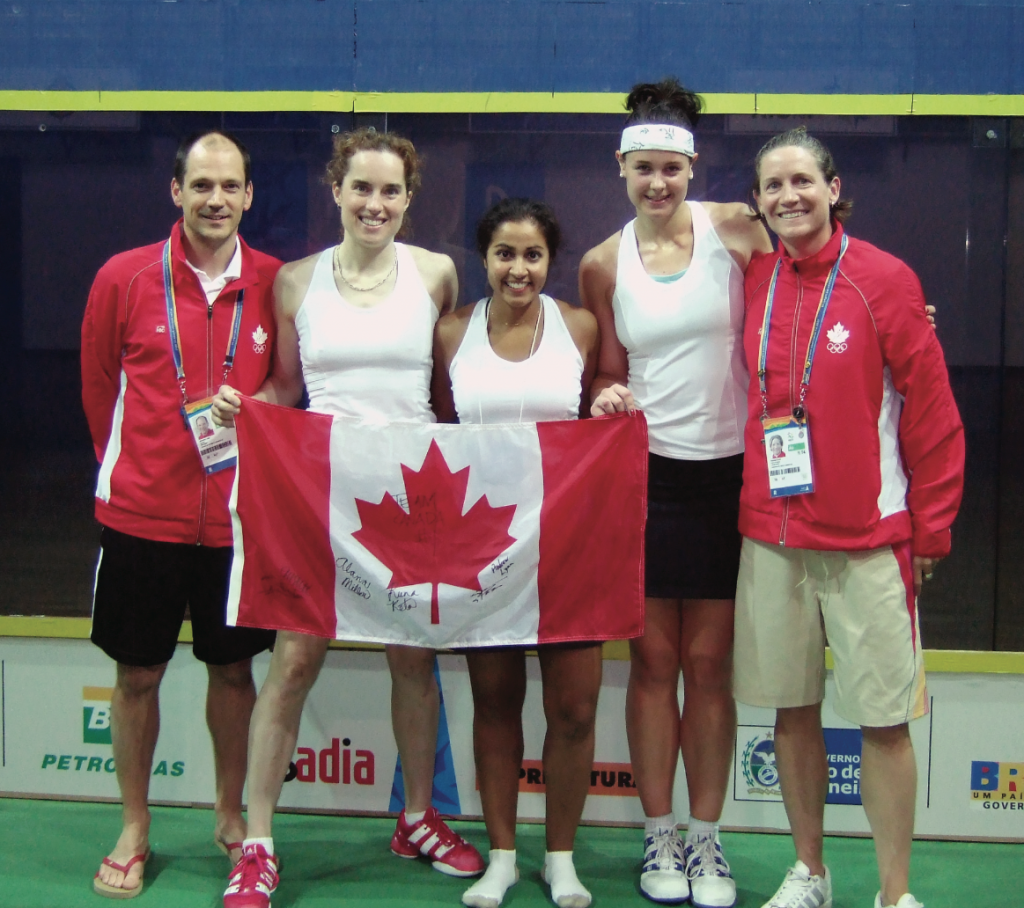
Fifty-eight minutes later, the squash venue was buzzing. Illingworth had indeed pulled off the upset. Said Walker when asked what happened, “On that day, Julian played the right shots in the right order the majority of the time, and he found the kinks in Razik’s armor that were there. Julian just needed to keep going and keep his belief in the fact that he could win it. And he did. I was really pleased with his performance.”
When reached by phone from his new apartment in New York City, Illingworth summed up the match succinctly: “The court was pretty dead which suited my game more than for a lot of guys. I was able to control the ball and keep it pretty slow off the lobs. Razik definitely was not liking the court that much. But it was good for me because I was stepping up and volleying everything. Just not letting the ball get to the back too much and taking it in short when I had the opportunity.” The result was a 3-love win in just under an hour. Which was good for Illingworth, because the semifinals were played a mere four hours later.
And after putting in another grueling 95 minutes in the semis to upset the 3/4 seeded Colombian, Miguel Angel Rodriguez, Illingworth landed in the gold medal round with a shot at making history.
But that was where the possible “miracle on maple floors” ended. Facing Mexico’s Eric Galvez the next day for the championship, Illingworth simply had nothing left. “For the final, I had played Razik the morning before, and my match with Miguel was like an hour and 40 minutes. So I was completely done for the final. I just couldn’t push through it,” said Illingworth. “But it was kind of a ‘rest’ day for me going into the team event since I really couldn’t play and Galvez played hard enough to win. He pushed through the final, but after that he was totally done.”
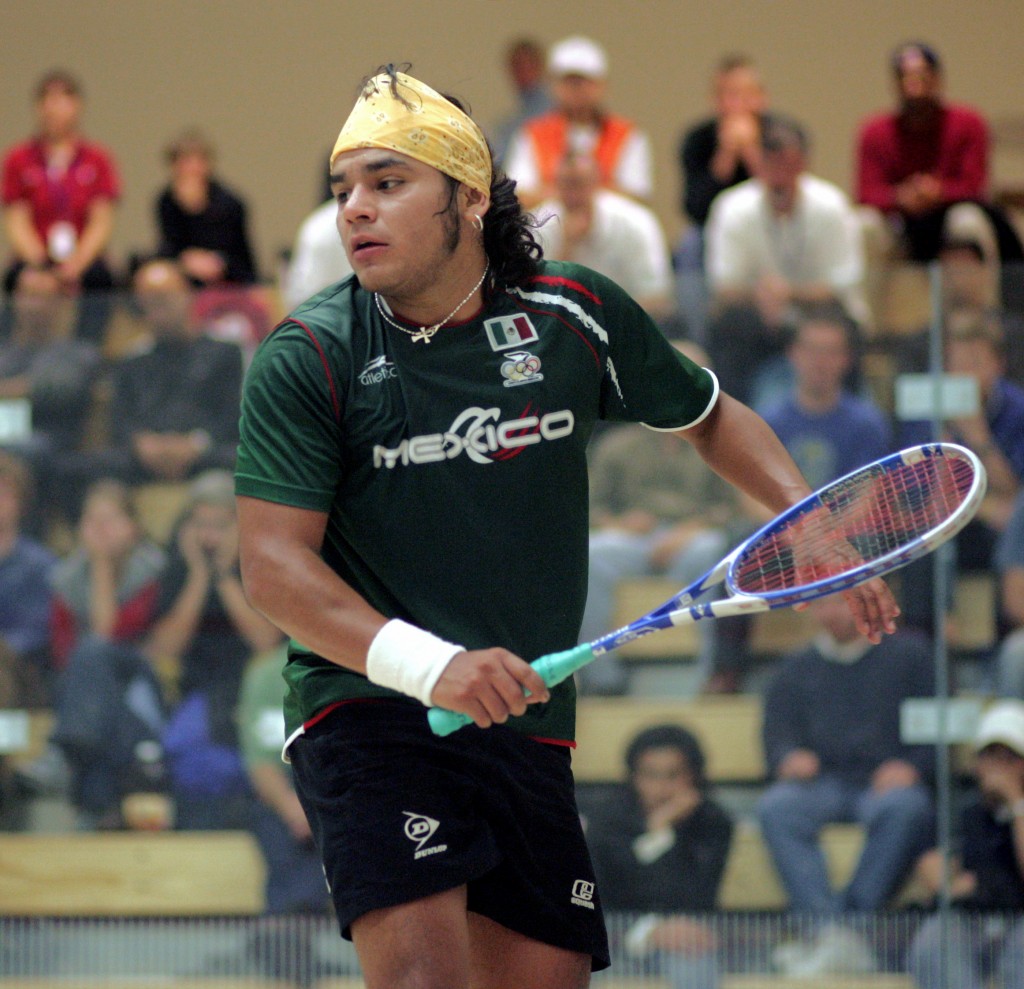
With no rest for the weary, the men’s and women’s teams launched into the team event the following day. The United States women were defending champions and expected to win. The men had never even won a medal, while the Canadian men had never lost the gold.
The US Men faced Mexico in pool play the day after the individual final and, though Mexico won the tie, Illingworth did exact a bit of revenge by beating Galvez 3-1, capped by a bagel in the fourth. The Americans ended pool play in second place behind Mexico (Pool A), went on to lose to third-seeded Brazil in the quarterfinals, and ultimately beat Argentina for a respectable fifth place. Colombia beat Canada for the gold medal.
The US Women won their pool easily without dropping a single match, quickly knocked off Mexico in the semifinals 3-0, and found themselves facing Canada in the finals for the fourth consecutive time.
The last time the two teams met at the Pan Am Games, Grainger was just beginning the citizenship process and Latasha Khan was the individual gold medalist who led the Americans to the team gold medal for the first time. This time, the Canadians came to win the team gold. And they did. Leading things off, Canada’s Carolyn Russell overcame a 3-9 loss in the first game, to Michelle Quibell, by winning the final three to stake Canada to a 1-0 lead. But Grainger stepped up for the Americans and put in her 22 minutes to even the match with a convincing win over Runa Reta. Then it was Alana Miller’s turn to secure a gold medal that she had hoped to take from Grainger in the individual singles final. To do it, she would have to beat Latasha Khan. Miller, who put in a lot of match time on the slow courts in Brazil by reaching the final of the individuals, never lost control of this match as she beat Khan for the second time in three weeks 3-love.
“Latasha was great and gave 100% and was a strong part of the team,” said Coach Walker. “We went into the team event with a good frame of mind. But by the end of it, it was clear that we were lacking in the strength and endurance side of things to finish strong, and have that little extra that we needed to win.” Simply stated, the Canadian women went to Brazil determined to take back the gold medal. “They did their job. We didn’t do the job that was necessary to win. So the result was fair,” commented Walker. “But what I’m saying about the team event is the strength, durability, and fitness of our team to get through a six-day event with a hell of a lot of squash is still lacking. And the good news is that it means it is something we can definitely improve on. If we get that under our belt, we’re going to be a really hard team to beat in the Pan Ams.”
So the question is, what is the significance of the results that the American players achieved at the Pan Am Games? With squash on the outside of the Olympics looking in, what does it do in terms of drawing attention to the sport within the USOC? The answer is—a lot.
“The question we ask,” said Kelly Skinner, Director of USOC Sport Partnerships, “is ‘How competitive are we?’ When we look at these results in the Pan Am Games and see what happened down there, we’re very encouraged by what we’re seeing with US Squash. Their performances in Rio make people stop and actually talk about squash versus, ‘Oh yeah, squash is in the Pan American Games.’ It helps us. And because US Squash only competes at the Pan Am Games, in terms of with the USOC, these results give more people on our staff a chance to interact with people within the NGB (National Governing Body).”

Even more clear is how US Squash CEO Kevin Klipstein sums up the impact that winning a gold and two silver medals in Rio has on the future of squash within the Olympic world. “For the USOC, the primary goal and measure of success is medals won. The fact that we won these medals puts us on the map with the USOC because they see us as potentially adding to their medal totals. And it gives us more exposure to people within the USOC.” And medal counts ultimately go directly to the bottom line—money and other forms of support from the USOC.
Which takes us back to the vote in 2005 that left squash (and karate) off the program for 2012. The funding difference between being on the Olympic program versus being just a Pan American sport is potentially huge. “Because things that we look at are capabilities of winning medals internationally, how well your NGB is run, what type of programs you’re looking for us to fund,” said Skinner, “it makes a big difference being a Pan Am sport. Hypothetically, if we believe US Squash can win one or two medals at the Olympic Games and they were an organization being run as well as they are now, you’re probably talking about being in the neighborhood of at least $350,000-$600,000 from the USOC annually. And you’re less than $100,000 now. It would just change everything, because we’re charged with helping those sports win.”
So while it may be true that, short of being run over by that bus that left early on the day of the individual final, Natalie Grainger was going to win gold, the fact remains that she did. And Julian Illingworth and the balance of the women’s team captured silver medals. And the USOC was paying attention. On top of that, Grainger is ranked No. 5 in the world, Khan is No. 26 and Illingworth has become the highest-ranking American ever on the PSA tour at No. 52. And all of this matters in the eyes of the USOC. And if you don’t think the USOC matters in the eyes of the IOC, just remember that NBC is paying nearly $1 billion to broadcast the Beijing Olympic Games.
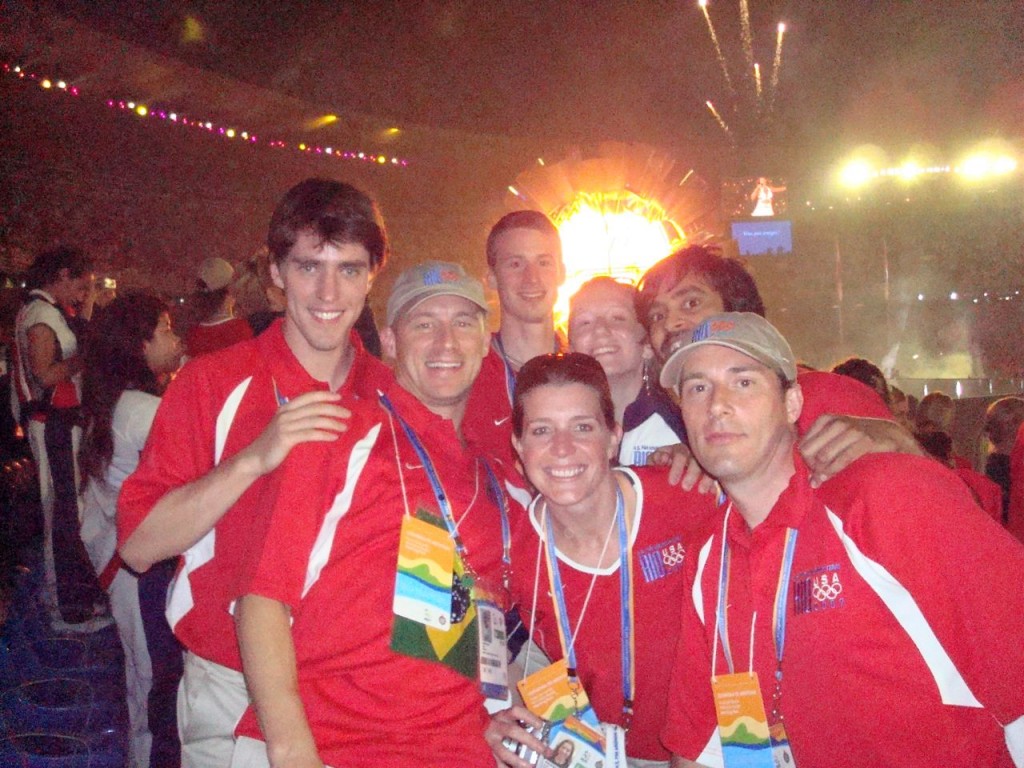
And as for the significance of that near miss in 2005? “I think it was significant,” said Skinner. “What we’re waiting for now is to see in Oct. 2009, the IOC will pick a city for the 2016 Games, and they’ll work on setting that program and the sports that will be on it. So we’re looking to get some clarity from the IOC in terms of what sports may be on and who may be off. And I do think that the IOC will eventually look at the disciplines of the sports themselves and say, ‘okay, we used to allow you to have 64 athletes in there, but now we’re going to cut you down to 32.’ And that opens up 32 spots. It’s hard for IOC President Jacques Rogge whose platform has always been ‘sport for all’ to say, ‘we’re going to eliminate a sport.’ It’s easier for them to say, ‘Let’s cut back on our numbers a little bit to make more room for more sports.’ Which is a much better situation.”
Time will tell for sure, but coming on the heals of being on, then off, the Olympic program; bringing home an individual gold medal for the second time, and two silver medals, could be the first step toward the ultimate dream of squash players the world over. Just imagine what it would be like for an upcoming junior squash player to someday be walking in with 10,000 other athletes to the Olympic Anthem and its blaring trumpets. Perhaps we’ll look back on this in 2016 and say to ourselves, “remember when…?”


